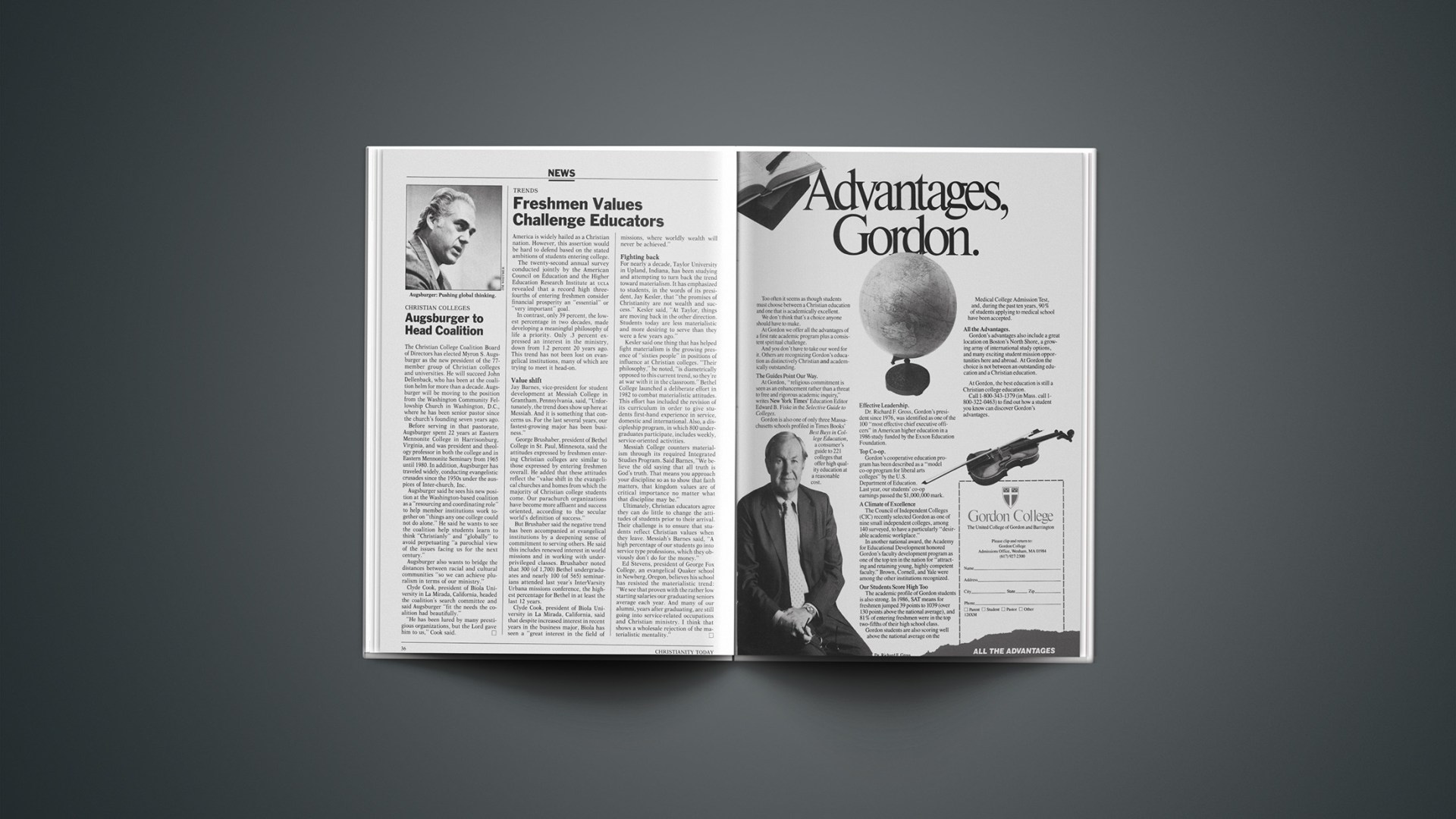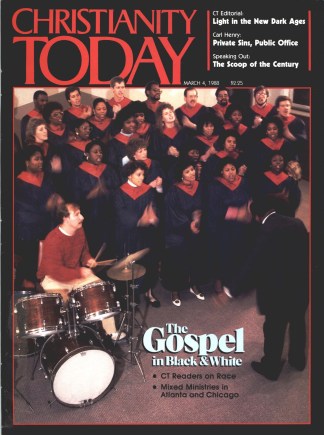America is widely hailed as a Christian nation. However, this assertion would be hard to defend based on the stated ambitions of students entering college.
The twenty-second annual survey conducted jointly by the American Council on Education and the Higher Education Research Institute at UCLA revealed that a record high three-fourths of entering freshmen consider financial prosperity an “essential” or “very important” goal.
In contrast, only 39 percent, the lowest percentage in two decades, made developing a meaningful philosophy of life a priority. Only .3 percent expressed an interest in the ministry, down from 1.2 percent 20 years ago. This trend has not been lost on evangelical institutions, many of which are trying to meet it head-on.
Value Shift
Jay Barnes, vice-president for student development at Messiah College in Grantham, Pennsylvania, said, “Unfortunately, the trend does show up here at Messiah. And it is something that concerns us. For the last several years, our fastest-growing major has been business.”
George Brushaber, president of Bethel College in St. Paul, Minnesota, said the attitudes expressed by freshmen entering Christian colleges are similar to those expressed by entering freshmen overall. He added that these attitudes reflect the “value shift in the evangelical churches and homes from which the majority of Christian college students come. Our parachurch organizations have become more affluent and success oriented, according to the secular world’s definition of success.”
But Brushaber said the negative trend has been accompanied at evangelical institutions by a deepening sense of commitment to serving others. He said this includes renewed interest in world missions and in working with underprivileged classes. Brushaber noted that 300 (of 1,700) Bethel undergraduates and nearly 100 (of 565) seminarians attended last year’s InterVarsity Urbana missions conference, the highest percentage for Bethel in at least the last 12 years.
Clyde Cook, president of Biola University in La Mirada, California, said that despite increased interest in recent years in the business major, Biola has seen a “great interest in the field of missions, where worldly wealth will never be achieved.”
Fighting Back
For nearly a decade, Taylor University in Upland, Indiana, has been studying and attempting to turn back the trend toward materialism. It has emphasized to students, in the words of its president, Jay Kesler, that “the promises of Christianity are not wealth and success.” Kesler said, “At Taylor, things are moving back in the other direction. Students today are less materialistic and more desiring to serve than they were a few years ago.”
Kesler said one thing that has helped fight materialism is the growing presence of “sixties people” in positions of influence at Christian colleges. “Their philosophy,” he noted, “is diametrically opposed to this current trend, so they’re at war with it in the classroom.” Bethel College launched a deliberate effort in 1982 to combat materialistic attitudes. This effort has included the revision of its curriculum in order to give students first-hand experience in service, domestic and international. Also, a discipleship program, in which 800 undergraduates participate, includes weekly, service-oriented activities.
Messiah College counters materialism through its required Integrated Studies Program. Said Barnes, “We believe the old saying that all truth is God’s truth. That means you approach your discipline so as to show that faith matters, that kingdom values are of critical importance no matter what that discipline may be.”
Ultimately, Christian educators agree they can do little to change the attitudes of students prior to their arrival. Their challenge is to ensure that students reflect Christian values when they leave. Messiah’s Barnes said, “A high percentage of our students go into service type professions, which they obviously don’t do for the money.”
Ed Stevens, president of George Fox College, an evangelical Quaker school in Newberg, Oregon, believes his school has resisted the materialistic trend: “We see that proven with the rather low starting salaries our graduating seniors average each year. And many of our alumni, years after graduating, are still going into service-related occupations and Christian ministry. I think that shows a wholesale rejection of the materialistic mentality.”










